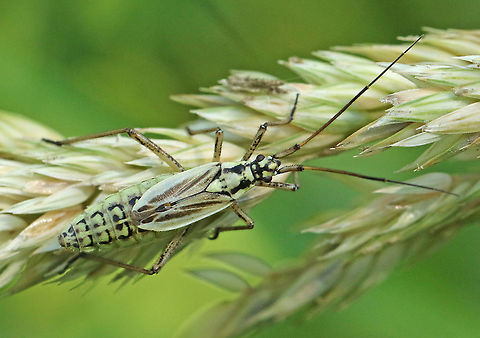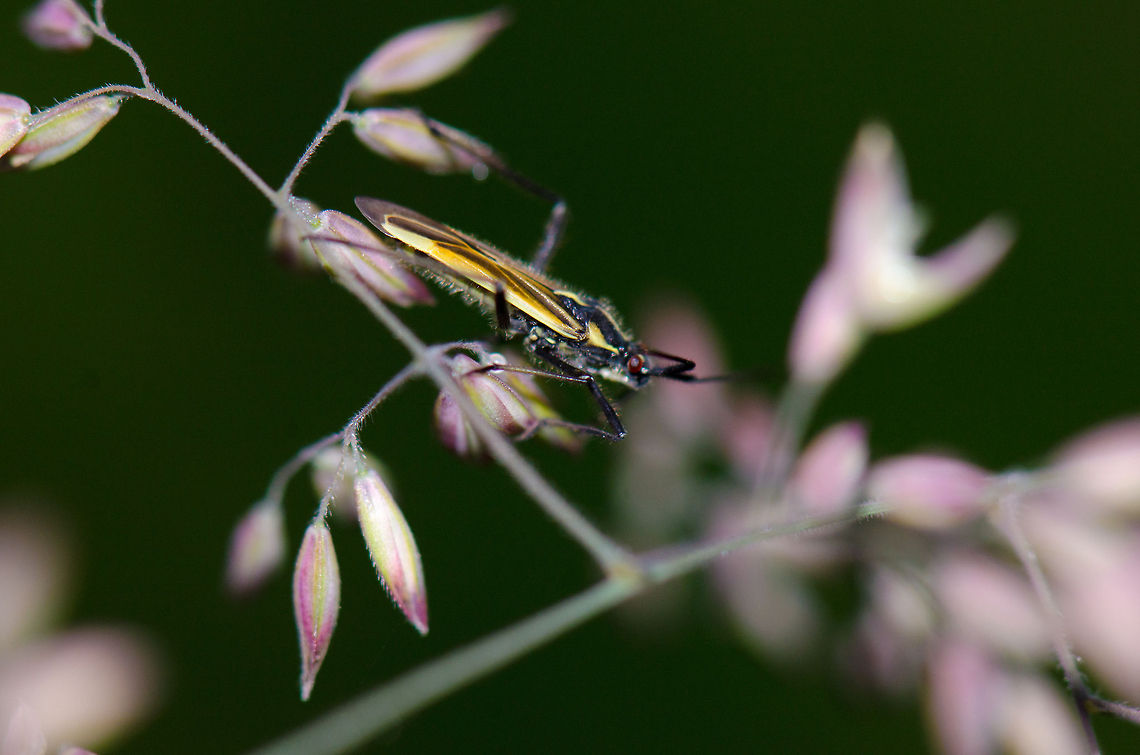
''Leptopterna dolabrata'', commonly known as the meadow plant bug, is an insect in the Miridae family. It is commonly found in grassy areas in North America and Europe. It feeds on developing grass seeds, causing seed heads to shrivel and prematurely whiten. It is regarded as a pest wherever grass is grown for seed. The species has long antennae and is black coloured.
Similar species: True Bugs
By Ferdy Christant
All rights reserved
Uploaded Jul 7, 2013. Captured Jun 28, 2013 22:06 in Nistelrodeseweg 24, 5384 PN Heesch, The Netherlands.


comments (4)
https://www.jungledragon.com/image/60775/hadrodemus_m-flavum.html
This is certainly not a Hadrodemus m-flavum (that species is also _extremely_ rare in the Netherlands). The viewing angle is less than ideal for ID on this image, but I'm pretty sure this should be Leptopterna dolabrata, so I'll change the ID to that.
Also, I really don't like the "jumping tree bug" denomination. To me, it somehow mostly sounds like something treehopper-ish (Cicadas s.l.) and the title is used for various other groups by different sites. The only usage for Miridae I could find stems from EOL and they themselves use the much more accepted "Plant Bug" in the article title (frankly I think someone made a mistake with the "jumping tree hopper" in the page title. So I'll take the liberty to remove references to this name, okay?!?
Cheers, Arp
cf.: http://eol.org/pages/611/details Posted 7 years ago, modified 7 years ago
If I were to upload images of plants, birds or mammals my IDs would be full of errors too (and I'm by no means error-free on arthropods either, I'm sure *rolleyes*). That's the great thing about JD - we can all complement each other, and the interaction with the other members while doing so is what makes it fun :o) Posted 7 years ago
And as you already know by now, I'm a web developer. And a nature enthusiast, but definitely not a zoologist. Based on experience, I think fungi, plants and arthropods are the most sensitive categories for misidentifications, clearly because they are the most difficult. Posted 7 years ago